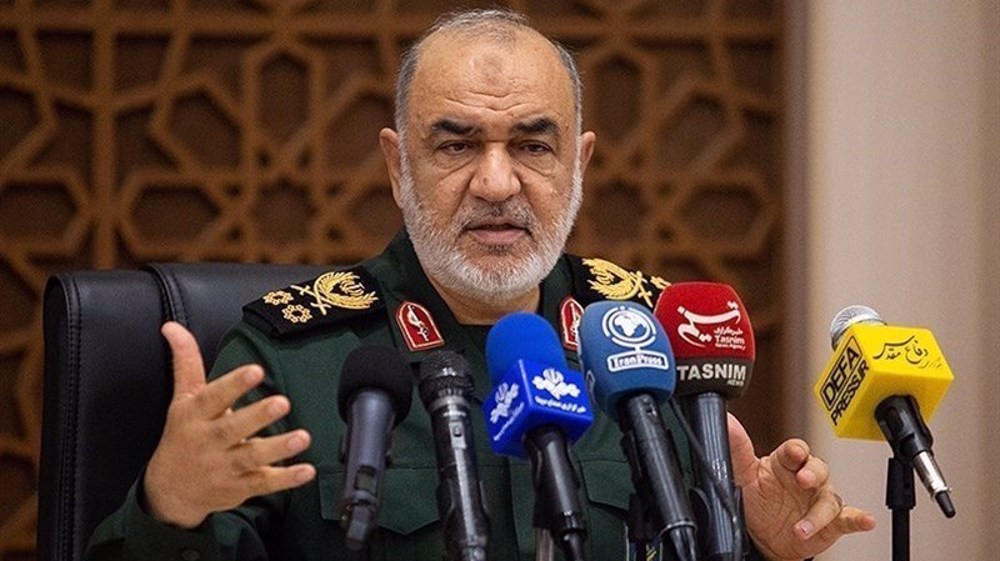Iran’s Plan to Strike Back Against the U.S.
Iran’s Military Preparations Following U.S. Attacks
Loading...

Chief commander of the Islamic Revolution Guards Corps (IRGC) Major General Hossein Salami says Iran hit over a dozen Israeli vessels after the regime targeted Iranian oil tankers in international waters.
Overview of the Conflict
In a significant escalation of tensions in the region, Major General Hossein Salami, the chief commander of Iran's Islamic Revolution Guards Corps (IRGC), announced that Iran has successfully targeted over a dozen Israeli vessels. This action comes in response to alleged attacks by Israel on Iranian oil tankers operating in international waters. Salami's statements highlight the ongoing maritime conflict between Iran and Israel, which has intensified in recent months.
The Sequence of Events
Salami detailed that the Israeli regime had attacked 14 Iranian ships in an effort to disrupt the country's crude oil exports. Initially, the identity of the attackers was unclear, as the assaults were carried out covertly. However, after investigations, it became evident that the Zionist regime was responsible. Following the destruction of their fifth vessel, Salami claimed that the Israelis signaled for a halt to what he termed the "ship war".
During a visit to the Khatam al-Anbiya Construction Headquarters in Tehran, Salami recounted past incidents that illustrate the ongoing maritime hostilities. He referenced the 2019 seizure of the British-flagged Stena Impero by the IRGC in the Strait of Hormuz, which occurred after the UK detained an Iranian oil tanker off Gibraltar. Salami noted that this incident led to a reciprocal action where Iran seized two ships from Greece, resulting in a standoff that ultimately forced the UK to surrender.
Strategic Maneuvers and Threats
Salami also discussed the strategic maneuvers employed by Iran to protect its maritime interests. He recounted a tense situation in May 2022 when two Iranian oil tankers were en route to Venezuela, facing threats of seizure from the United States. In a show of strength, Salami and the IRGC Navy chief, Rear Admiral Alireza Tangsiri, simulated the operation of capturing an American tanker, which ultimately allowed the Iranian vessels to reach their destination safely.
The IRGC commander emphasized that Iran had been navigating through a particularly challenging period, marked by the assassination of Lieutenant General Qassem Soleimani by a US drone strike, the COVID-19 pandemic, and severe economic sanctions. Despite these challenges, Salami asserted that the IRGC mobilized its resources to develop domestic solutions, including the production of coronavirus vaccines, while simultaneously securing shipping lanes and countering foreign-sponsored terrorist threats.
Current Maritime Security Landscape
Salami declared that the safest shipping lanes now belong to vessels flying the Iranian flag, indicating a shift in maritime security dynamics in the region. He expressed confidence in Iran's ability to thwart enemy actions and maintain control over its maritime routes. This assertion reflects Iran's broader strategy of asserting its influence in the Persian Gulf and beyond, despite ongoing international sanctions and military pressures.
Conclusion
The recent statements by Major General Hossein Salami underscore the escalating maritime conflict between Iran and Israel, characterized by retaliatory strikes and strategic posturing. As tensions continue to rise, the implications for regional security and international shipping routes remain significant. The IRGC's actions and claims of successful operations against Israeli vessels signal Iran's determination to protect its interests and assert its presence in the face of external threats.
BMM - MBA
Iran’s Military Preparations Following U.S. Attacks
Troops remain in five strategic locations, raising fears of renewed tensions and long-term occupation.
Opposition forces have taken control of the capital after a significant offensive. Here is how it unravelled.
